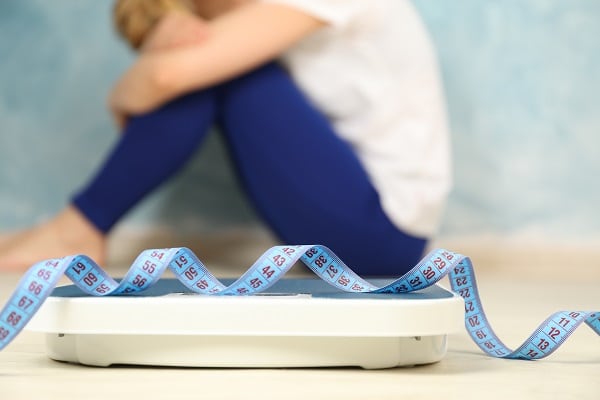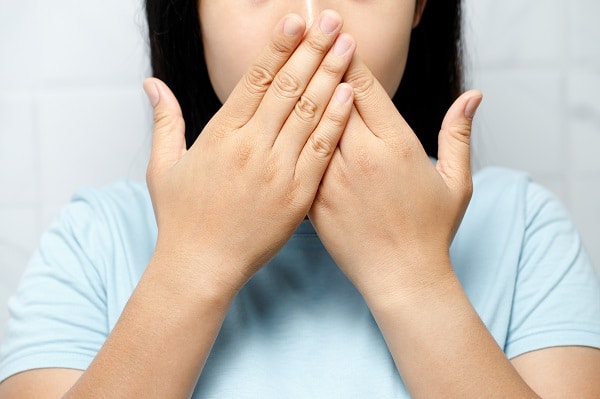You’ve probably heard it before, drink eight glasses of water a day. And while you may groan at the thought of another tedious task to add to your never-ending list, it’s essential to stay hydrated. Staying hydrated has tons of benefits, from keeping your skin looking healthy to helping you lose weight. But what if you’re not drinking enough water? Are there side effects of not drinking enough water? Turns out the answer is yes. Keep reading to learn more about the side effects of not drinking enough water and how to make sure you’re getting your daily dose.
Dehydration And Headaches: The Unseen Connection

Headaches are among the most common manifestations of dehydration. Nonetheless, this symptom is typically overlooked due to its association with various triggers, such as stress, allergies, sinus troubles, and insufficient sleep. The common denominator among all headaches is discomfort or pain, typically a persistent throbbing or ache. In instances related to dehydration, this discomfort is usually localized in one part of the head and tends to worsen with physical activity.
Severe headaches caused by significant dehydration can result in nausea and vomiting, which typically accompanies intense pain. It is crucial to recognize these symptoms and understand their connection with dehydration. This knowledge can guide you towards the appropriate solution—increasing fluid intake. If these symptoms persist for over 24 hours, it is recommended that you seek immediate medical attention. Remember, constant and severe headaches are a health anomaly that should not be ignored.
Fatigue: The Hidden Indicator Of Dehydration

The link between fatigue and dehydration is more pronounced than many realize. Fatigue can stem from various causes, such as physical exertion, poor sleep, and certain medical conditions. However, one often overlooked cause is dehydration. The body needs water for virtually all of its functions, so it is easy to see how a lack of water can decrease energy levels, making you feel tired.
This chronic fatigue can manifest as difficulty sleeping due to overwhelming daytime tiredness, a significant decrease in daytime energy levels, disinterest in formerly enjoyed activities, and an inability to concentrate on simple tasks. The mind can become sluggish and unresponsive due to dehydration. If such symptoms persist for more than a month, it is essential to communicate these observations with your healthcare provider. It is important to rule out the possibility that your fatigue stems from chronic dehydration, a highly rectifiable condition.
The Role Of Dehydration In Muscle Cramps

Muscle cramps, characterized by sudden, involuntary contractions or spasms of the muscles, often lead to sharp pain and a tight sensation in the affected muscle. Muscle cramps are typically localized to the legs, particularly the calf muscles, feet, and abdomen. A common precipitant of muscle cramps is dehydration, often overlooked because of the possible correlation with exercise or physical activity.
Another contributing factor to muscle cramps is the inadequate intake of crucial minerals like potassium and magnesium, which play vital roles in muscle function. These minerals, like water, are lost through sweat during physical activity, making hydration even more critical during and after exercise. If you’re prone to muscle cramps, try increasing your fluid intake and consuming foods rich in potassium and magnesium. This dual approach will address potential causes and provide your body with the necessary tools to prevent muscle cramps.
Constipation: An Uncomfortable Outcome Of Dehydration

Constipation is a common health issue that spans all age groups. Defined as having fewer than three bowel movements per week, constipation can be uncomfortable and disruptive. Many factors contribute to constipation, including diet, lifestyle, certain medications, and stress. However, a frequently overlooked cause is insufficient water intake, leading to hardened stools that are difficult to pass.
When dealing with constipation, it’s important to consider your fluid intake as part of the problem—and the solution. Increasing your water consumption is one of the first steps in addressing this issue. However, if symptoms persist, consulting with a healthcare provider may be necessary to explore other potential causes and solutions. Remember, constipation is not just a nuisance; it is a health issue that warrants attention and, in some cases, medical intervention.
Weight Gain And Dehydration: The Unforeseen Link

Drinking water has long been associated with weight loss. Various studies support this notion, revealing that individuals who consumed a couple of cups of water before meals lost more weight than their counterparts who did not. This finding underscores hydration’s importance when trying to shed those extra pounds. But what about the inverse situation? Does a lack of hydration have any effect on your weight? Surprisingly, the answer is yes.
When dehydrated, your body tends to retain excess fluid, creating a sense of bloating and contributing to weight gain. In its wisdom, the body clings to whatever water it has to ensure its functioning. This survival mechanism, while vital, can lead to water retention, reflecting as additional pounds on the scale. So, remember to keep up with your water intake not just for weight loss but also to avoid unintended weight gain.
Dehydration And Skin Health: The Overlooked Connection

Achieving and maintaining healthy skin is a common aspiration, but it can sometimes seem daunting. One crucial aspect of skin health that is often overlooked is hydration. Research has shown that dehydration is the leading cause of various skin issues. When dehydrated, your skin cells lack the necessary water to function optimally, leading to dry, flaky skin and potentially resulting in clogged pores.
Clogged pores can create a domino effect, leading to breakouts, acne, and even chronic skin conditions like dermatitis and psoriasis. To avoid these issues, ensure you are drinking enough water daily. Adequate hydration will keep your skin moisturized and supple, helping to keep these issues at bay and even aiding in preventing wrinkles. Thus, drinking water is a simple yet effective strategy for maintaining the health and vibrancy of your skin.
Dizziness: A Surprising Dehydration Symptom

Dizziness, characterized by lightheadedness, unsteadiness, or a false sense of motion, can be quite disorienting. It is typically triggered when a person stands up after sitting or lying down for an extended period and can be intensified by quick head movements. However, many people do not realize that dizziness can also be a symptom of dehydration.
When your body is dehydrated, it lacks the necessary fluids to perform its functions optimally, which can lead to a range of symptoms, including dizziness. Dehydration, therefore, should not be ruled out if you experience frequent bouts of dizziness, particularly if these episodes interfere with your daily life. As with any health anomaly that interferes with normal functioning, it is essential to consult a healthcare provider to discuss these symptoms.
Bad Breath: An Unpleasant Offshoot Of Dehydration

Halitosis, commonly known as bad breath, can be quite embarrassing. While it is often attributed to factors like poor oral hygiene, gum disease, or certain foods, dehydration can also contribute to this problem. When dehydrated, your body struggles to produce enough saliva, which is crucial in maintaining oral health. Saliva cleanses the mouth and helps to control bacteria, which can cause bad breath when left unchecked.
If you frequently deal with bad breath, consider whether you’re drinking enough water daily. Increasing your fluid intake can boost your saliva production, helping to control bacteria and combat bad breath. Remember, maintaining hydration can be a simple yet effective strategy for preserving your oral health and overall well-being.
The Bottom Line
Dehydration can be caused by various factors, including your diet, lifestyle choices, and environment. To avoid the myriad health problems that can stem from insufficient hydration, consuming enough water each day is crucial. Remember that maintaining optimal hydration is not just about avoiding the adverse effects of dehydration—it’s about promoting overall health and wellness. If you suspect dehydration may affect your life, don’t hesitate to consult a healthcare provider. They can offer personalized advice and strategies to help ensure you’re staying properly hydrated.


